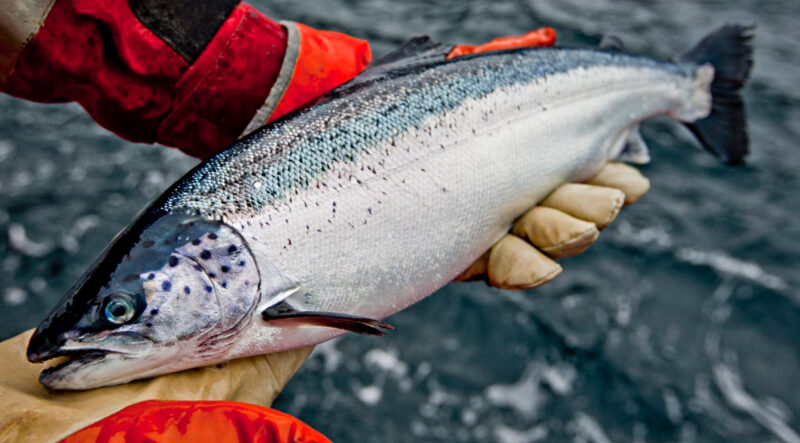Salmon producer Cermaq to cut greenhouse gas emissions
Salmon producer Cermaq sets binding climate goals for its aquaculture operations to cut greenhouse gas emissions while ensuring food security
By SeaWestNews
Cermaq will cut 35 percent of its total greenhouse gas emissions by 2030, making the salmon producer one of five global aquaculture companies that have adopted science-based climate targeting (SBTi).
With the committed target, Cermaq which has fish farming operations in Norway, Chile and in the waters off British Columbia in Canada, becomes one of only ten companies globally in animal sourced food production, that have set the most binding climate goals for their business.
Climate goals and measures are based on the latest climate science and what is required to remain below the Paris Agreement aim of keeping global warming well below two degrees Celsius. The goals are verified by certified third parties and only contain measures with real climate impact.
“Climate change is the single largest environmental issue we are facing today,” said David Kiemele, Managing Director Cermaq Canada.
“In BC, we are now witnessing weather and ocean conditions never seen before in our lifetime – the time is now for businesses to step up and lead the way in climate action. There is no time to waste, our ocean ecosystems depend on it,” he said.
Cermaq Global has made plans for major changes to electrification, access to raw materials and transport while its Canadian operations will be zeroing in on reduction of diesel use, potential pathways for electrification and clean technology.
Other aquaculture companies that have adopted science-based climate targeting are BioMar Group, Lerøy Seafood Group ASA, SalMar ASA and Grieg Seafood ASA.
“Society is looking to food producers to find solutions to reduce climate impacts while ensuring food security…Cermaq Canada is embracing this expectation,” said Kiemele.
Cermaq’s climate goals come at a time when anti-marine aquaculture activists in BC have ratcheted up their science-deficit campaigns to demand that ocean based farmers move their operations to grow fish in land-based tanks.
Studies on this issue have shown transitioning all open-net fish farms in British Columbia to land-based salmon farms operations requires the use of large amounts of land, water, and power, and thus has a significant environmental footprint, in particular greenhouse gas emissions.
Other challenges to land based grow-out facilities include the global shortage of a trained workforce, fish health, broodstock development, stocking densities, and financial risks, according to The State of Salmon Aquaculture Technologies study released in February 2020.
Currently, B.C. ocean-based salmon farms emit only 2.2 kilograms of carbon dioxide for every kilogram of edible fish produced. That is less than half of any animal raised on land, including 5.1 kilograms of CO2 per kilogram of chicken, 6.4 kilograms for pork, and 37.2 kilograms for beef.
Should British Columbia succumb to the demands of anti-fish farm activists to move all ocean-based salmon farms to land based operations, the province will see a whopping increase of 22,881,000 kilograms of Greenhouse Gas (GhG) emissions, according to an independent study by RIAS Inc.
Translated, that number amounts to the energy per year needed to power a population of 52,200, or a city the size of North Vancouver.
The High Level Panel for a Sustainable Oceans Economy, to which Canada’s Prime Minister Justin Trudeau is a signatory, has said “the largest potential carbon reduction gains for food production lie in the sustainable expansion of marine aquaculture.”
(photo courtesy of Cermaq)

